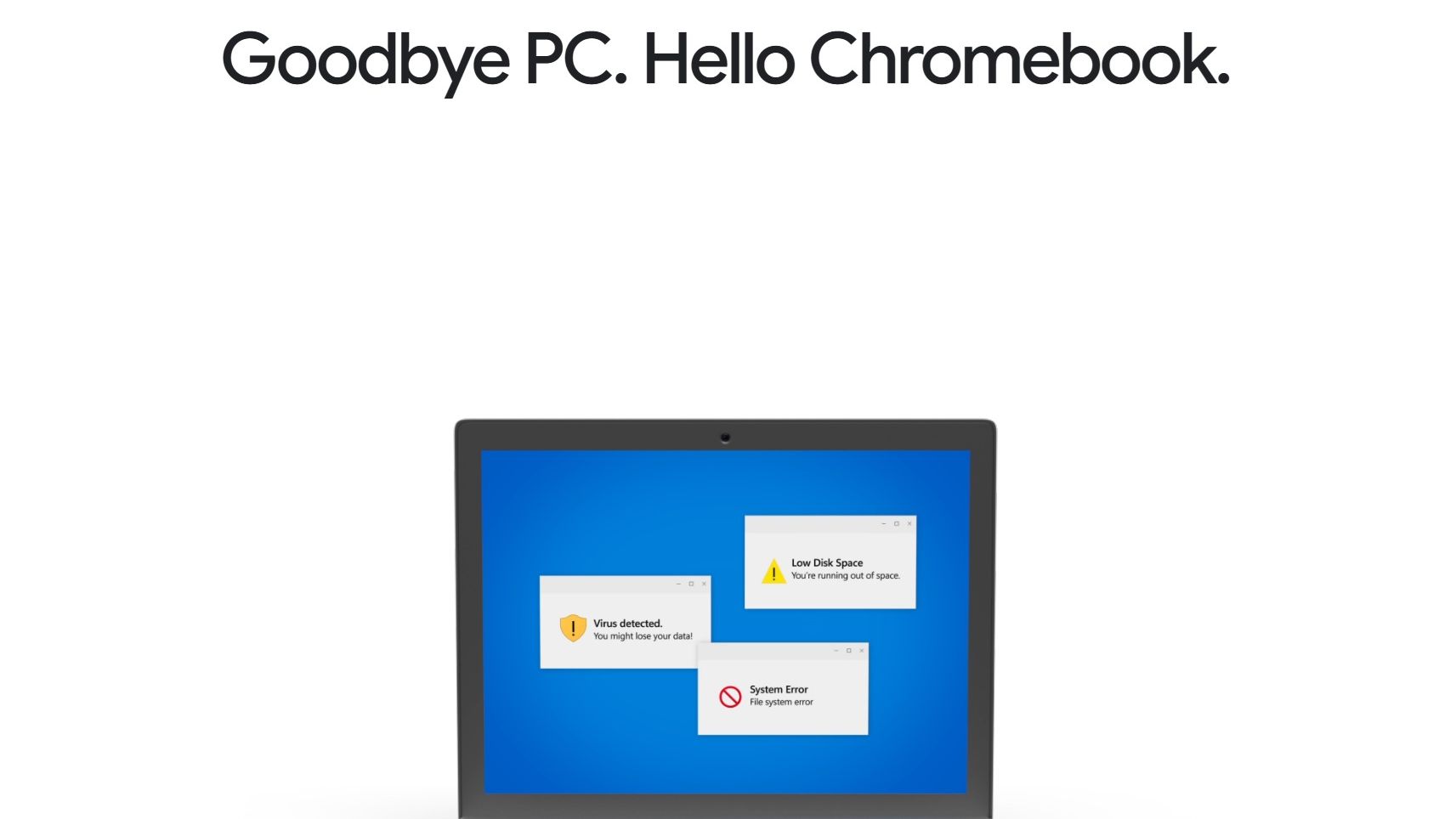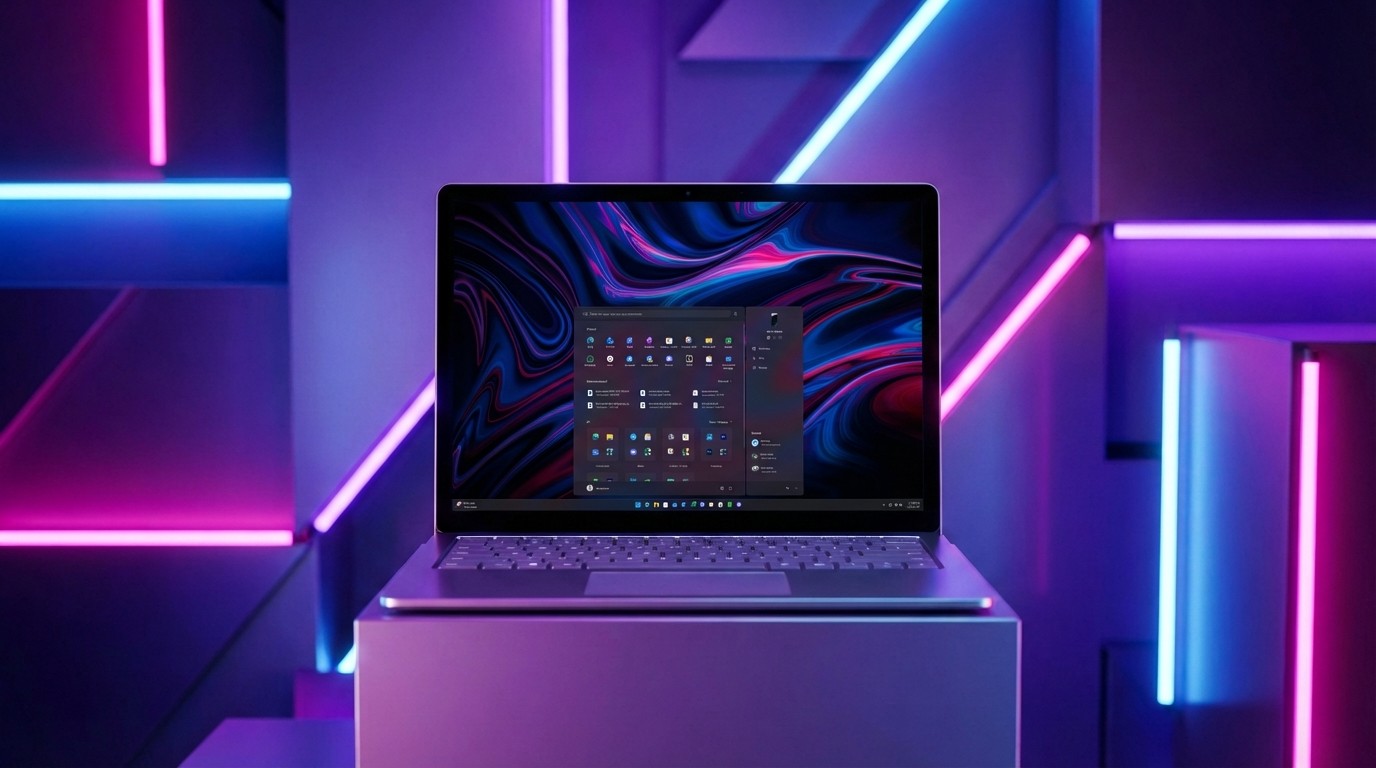Google aims new ads at Windows 10 holdouts — but will users really switch to Chromebooks?
With Windows 10 support ending, Google is making its boldest Chromebook push yet, but can it win over loyal PC users?
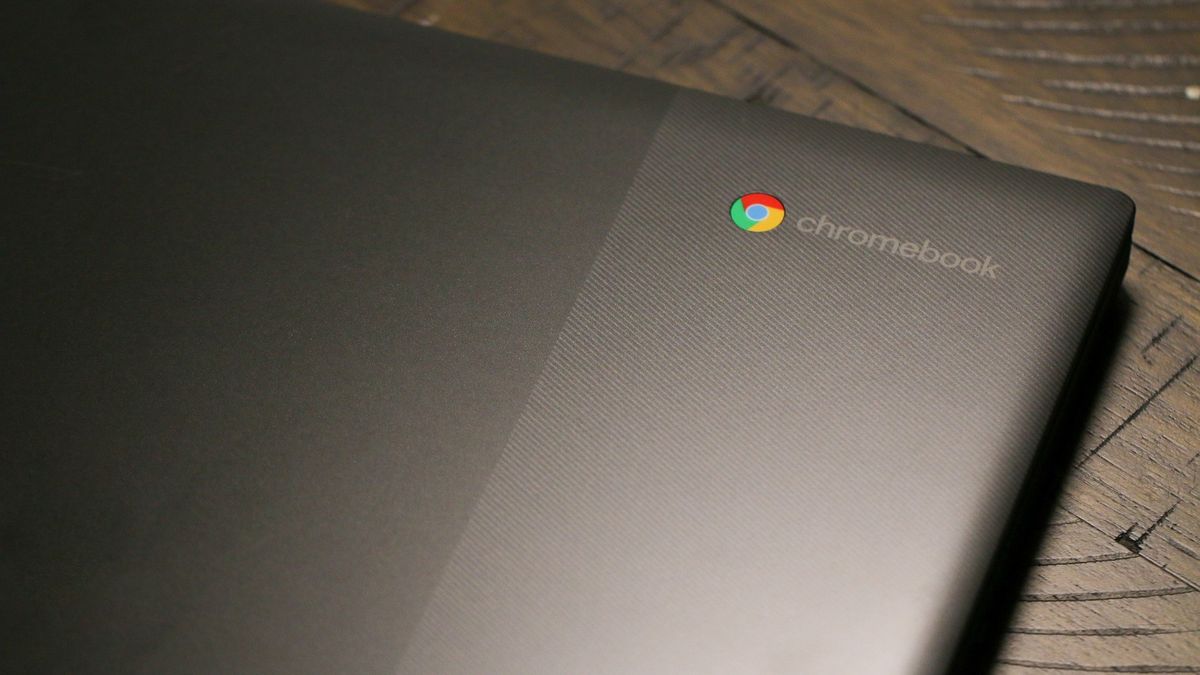
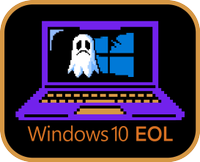
All the latest news, reviews, and guides for Windows and Xbox diehards.
You are now subscribed
Your newsletter sign-up was successful
Microsoft is sunsetting Windows 10, with end-of-life for the operating system set for October 14, 2025. After that date, users will no longer receive security updates, leaving millions at risk.
In 2020, it was estimated that Windows 10 had passed 700 million users, and now in 2025, many users can’t upgrade due to Windows 11's hardware requirements.
Google has spotted an opportunity here. The company has launched a new Chromebook and ChromeOS ad campaign, directly targeting Windows 10 users. The ads highlight the looming security risks and pitch Chromebooks as a safer alternative with regular updates.
Google’s Chromebook push
Google is running ads directly on Google.com, with messages like: “Time for a new laptop? Get Chromebook Plus. With security fixes for Windows 10 ending this October, switch to the laptop that has never had a virus.” The warning makes it clear that Windows 10 security updates are ending soon.
The ad suggests that Windows 10 is no longer safe, especially when compared to Chromebooks. To drive the point home, it even shows a generic laptop displaying a virus alert on a Windows-style blue screen.
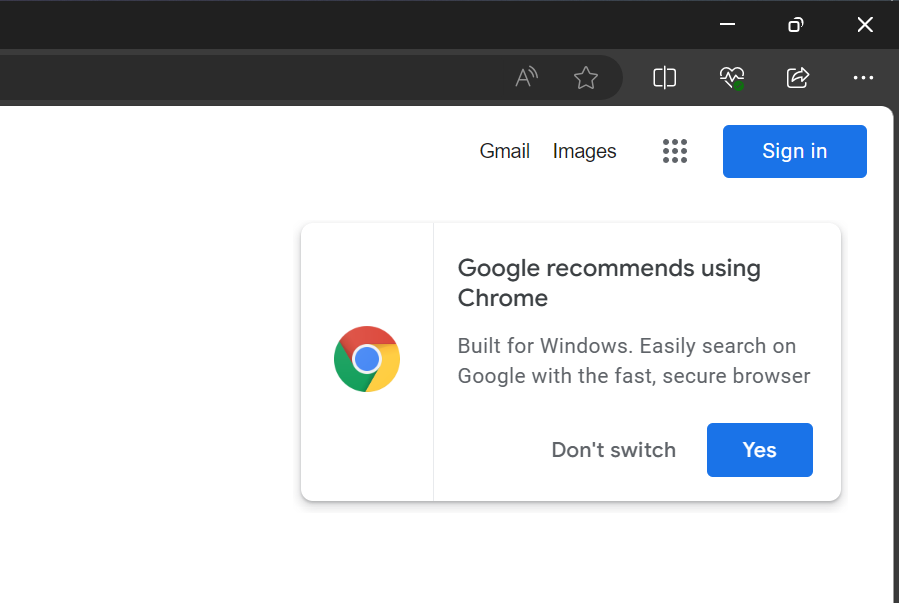
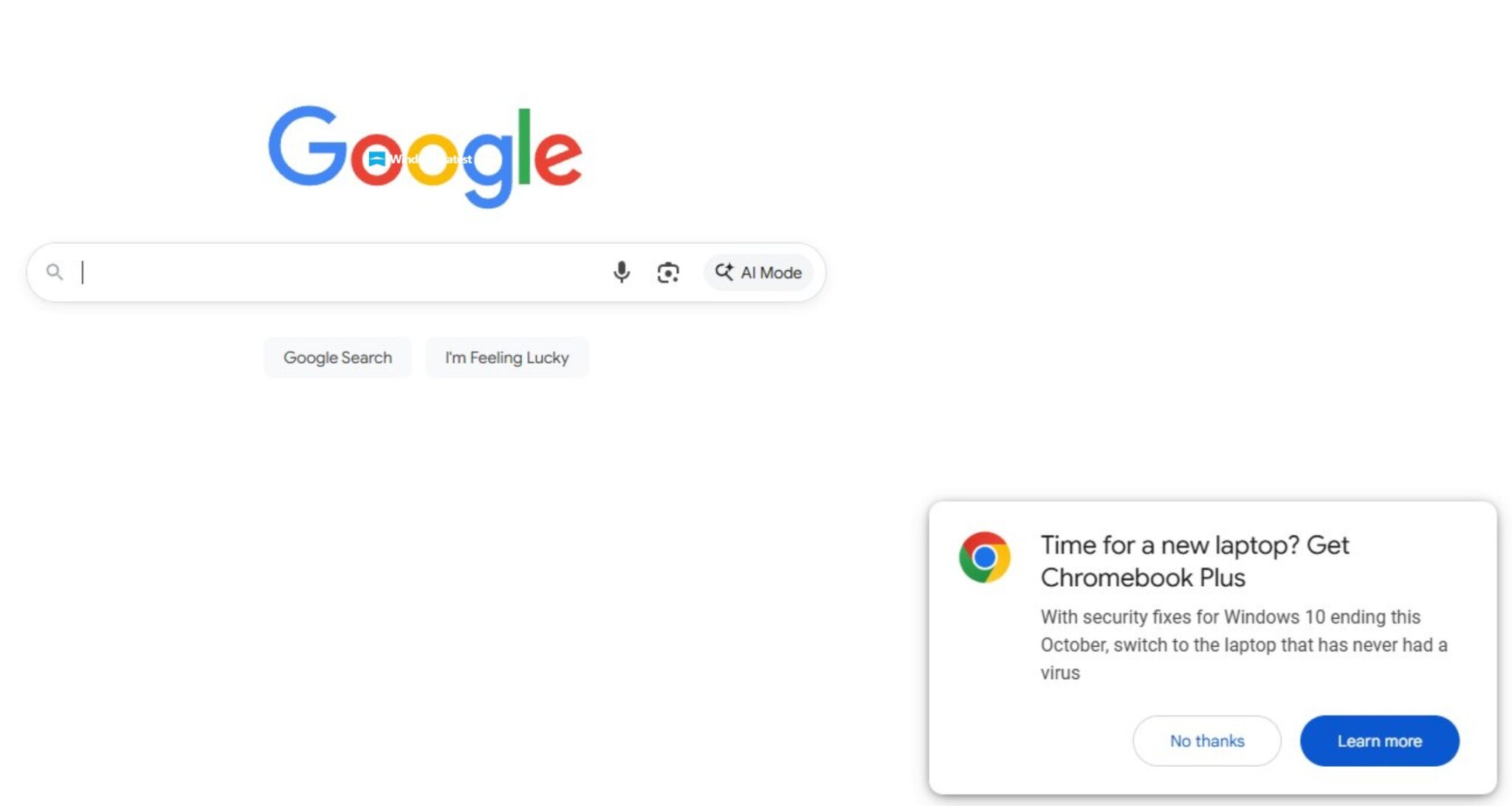
It’s a bold effort from Google to push users toward Chromebooks. Still, it’s hard to imagine many people making the switch, given that ChromeOS has its own limitations, even if it has carved out a strong niche in schools.
It's also not the first time Google has done this. We reported back in March that Google had already started a similar push to get users to switch, anticipating the big October deadline for Windows 10 users.
This isn’t a one-sided fight either; those who use Bing search get prompted to stick with Microsoft Edge when trying to download Chrome, so it’s only fair that Google takes jabs where they can.
The Windows 10 upgrade dilemma
Windows 10 still powers nearly half of all PCs in use, while Windows 11 adoption has been slower than Microsoft likely hoped, sitting at around 40%.
The main barrier comes down to hardware requirements. Windows 11 needs TPM 2.0 and Secure Boot, and not every machine has them.
It’s estimated that more than 200 million PCs can’t be upgraded because of these restrictions. That leaves users with a tough choice: buy a new PC that supports Windows 11, pay Microsoft for extended security updates unless you’re in the European Economic Area, in which case they’re free for another year, keep using Windows 10 without updates and risk security issues, or switch to an alternative.
Google would prefer users to make the jump to ChromeOS, but some fans continue to suggest Linux as another option.
Chromebook opportunities and limitations
To my surprise, having tried Chromebooks once upon a time, they’re far from dead. In fact, they’re widely used, especially in schools. In the U.S. and Canada, many school districts rely heavily on Chromebooks for students due to lower costs and easier IT management, and Microsoft has been fighting them for years with various attempts in education.
Google also offers ChromeOS Flex, which can be installed on older Windows hardware. This gives aging PCs a new lease of life without needing to buy something brand new.
Chromebooks themselves are usually cheap, secure, and come with automatic updates. Build quality can vary, but the pitch of low cost and low maintenance can be appealing for some.
Google even highlights that ChromeOS has had zero reported ransomware attacks, which is impressive.
Of course, switching to ChromeOS comes with trade-offs. You lose access to Windows apps, the platform relies heavily on internet access, and storage and power are often limited compared to a traditional laptop.
Still, for basic tasks like browsing, writing, or schoolwork, a Chromebook or ChromeOS might not be a bad deal at all.
What this means for users and the market
End of life for Windows 10 will likely force millions of people to decide what to do next. It makes sense that Google sees this as an opportunity to step in and try to win over some of that user base.
That said, I think most people will still end up buying a new Windows 11 PC, paying for extended updates, or finding another workaround.
I’d be curious to hear from those of you still on Windows 10. What’s the main barrier stopping you from upgrading? Is it the hardware requirements, the cost, or something else entirely?
via Windows Latest

Follow Windows Central on Google News to keep our latest news, insights, and features at the top of your feeds!

Adam is a Psychology Master’s graduate passionate about gaming, community building, and digital engagement. A lifelong Xbox fan since 2001, he started with Halo: Combat Evolved and remains an avid achievement hunter. Over the years, he has engaged with several Discord communities, helping them get established and grow. Gaming has always been more than a hobby for Adam—it’s where he’s met many friends, taken on new challenges, and connected with communities that share his passion.
You must confirm your public display name before commenting
Please logout and then login again, you will then be prompted to enter your display name.
